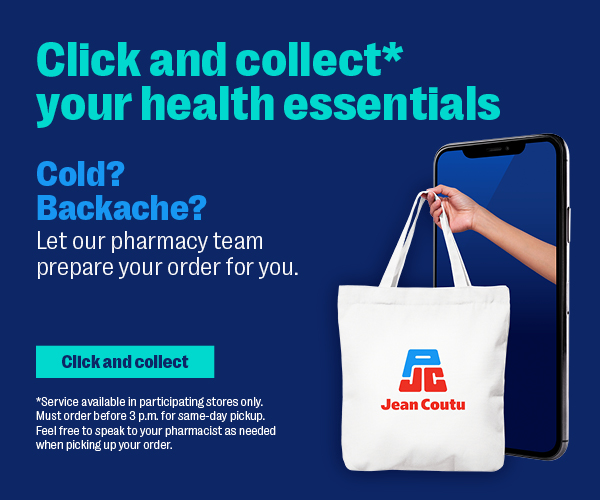When affected by gastroenteritis, rehydration is a major issue. Electrolyte replacement solutions offer an effective way of restoring the body's water balance. These non-prescription products are designed to treat dehydration caused by diarrhea or vomiting. Learn how these solutions work to restore lost fluids and essential electrolytes, and discover how to prepare a homemade solution should the need arise. We'll also look at the role of nutrition in treating gastroenteritis.
Understanding gastroenteritis and its effects
Gastroenteritis is an inflammation of the digestive tract that causes symptoms such as vomiting, diarrhea or abdominal cramps. It can be caused by a variety of agents, such as bacteria, viruses or parasites. During these episodes, the body loses significant quantities of water and electrolytes, essential substances for the proper functioning of our organism. The consequences of this loss can be serious, ranging from dehydration to electrolyte imbalances, which can lead to nervous and muscular disorders. It is therefore crucial to replace these losses rapidly to avoid complications.
Signs and symptoms of dehydration
Dehydration manifests itself through a variety of signs and symptoms. One of the first symptoms is intense thirst, which may be accompanied by a reduction in urine volume and a change in color to a darker appearance. External signs may also be observed: dryness of the skin, lips or tongue, and sinking of the eyes into the sockets. Muscular disorders such as cramps or muscle weakness may occur, as well as cardiac disorders such as arrhythmia. Neurological symptoms such as confusion, convulsions or bad breath can also be signs of dehydration.
The importance of rehydration in the event of gastroenteritis
Rehydration is crucial to countering the effects of gastroenteritis. It compensates for water and electrolyte losses caused by vomiting and diarrhea. Rehydration also helps stabilize the body's acid-base balance, which is often disturbed during these episodes. This can be achieved with electrolyte-rich drinks or rehydration solutions. These solutions are available in pharmacies, but can also be prepared at home. Effective rehydration helps prevent a deterioration in health, and promotes faster recovery.
Rehydration solutions available in pharmacies
For effective rehydration in the event of gastroenteritis, various solutions are available from pharmacies. The choice depends on the patient's age and preferences.
- These solutions contain the ideal proportions of water, sugar and mineral salts needed for rehydration.
- They are available without prescription.
- It is advisable to consult a healthcare professional if in doubt about the choice of solution to use and the recommended dosage.
These products can be consumed in various forms: liquid (e.g. Pedialyte), powder to be reconstituted with water (e.g. Gastrolyte, Electrolyte Gastro) or even in the form of popsicle sticks (Pedialyte).
Use of rehydration solutions in adults
Rehydration solutions are ideal in cases of diarrhea or vomiting. Their use is simple: they should be consumed in small, frequent quantities, with the dose increasing according to tolerance in the event of vomiting.
However, it is advisable to check the recommended dosage with your pharmacist according to your symptoms.
Are sports drinks (e.g. Gatorade) a good option for rehydration?
Sports drinks (e.g. Gatorade) can be an alternative for rehydration in the event of gastroenteritis, if no oral rehydration solution is available. However, although they contain electrolytes such as sodium and potassium, the concentrations are not the same as in rehydration solutions, and they also contain sugar, colorants and flavors which are not optimal. It is therefore advisable to consume sports drinks in moderation, and only if no other means of rehydration is at hand.
Preparing a homemade rehydration solution
Oral rehydration solutions sold in pharmacies can be replaced by a homemade rehydration solution by following a precise recipe. To prepare a homemade rehydration solution, hygiene is essential. Start by washing your hands thoroughly with soap and water, and ensuring that the utensils and container used for mixing are clean. Next, assemble the necessary ingredients.
For an easy-to-make preparation, use exactly the following quantities:
- 360 ml (12 oz) pure, unsweetened, pulp-free orange juice.
- 600 ml (20 oz) cooled boiled water.
- 2.5 ml (1/2 teaspoon) salt.
Mix these ingredients thoroughly until the salt has dissolved. This solution is stable for 24 hours and should be kept refrigerated between 2 and 8℃.
The right diet for gastroenteritis
During a bout of gastroenteritis, food plays a crucial role in helping your body recover. It's important not to stop eating, as eating helps the intestines to heal and the body to regain its strength. The aim is to continue eating foods that you can tolerate and that are easy to digest.
- Start with small amounts of food and gradually increase according to tolerance and appetite.
- Foods such as unsweetened cereals, bread, eggs, lean meats and fish cooked in little fat are generally well tolerated.
- Fresh or canned fruit in its juice (not syrup) is recommended. They are rich in vitamins and minerals essential for recovery.
- Cooked vegetables are also a good option. They're easy to digest and provide important nutrients.
It is advisable to avoid fatty, spicy or sweet foods, which can aggravate symptoms. Gradually return to a normal diet, depending on the evolution of symptoms and appetite.
Tips for staying hydrated during vomiting
When vomiting occurs frequently, it can be difficult to maintain an appropriate level of hydration. Here are a few recommendations:
- Drink often, in small quantities: Start slowly by drinking a tablespoon of liquid every minute. This can help prevent another wave of vomiting.
- Choosing the right fluids: Electrolyte-rich drinks such as oral rehydration solutions are recommended. Avoid sugary drinks or fruit juices, which can aggravate vomiting.
- Use ice cubes: Sucking on ice cubes can be a good alternative for staying hydrated without inducing vomiting.
- Gradually reintroduce food: Once vomiting has subsided, start with light, easily digestible foods, such as rice, fruit, eggs or lean meats.
Remember, consult a doctor if symptoms persist or worsen.
Rehydration in children: specific features and precautions
In children, rehydration requires special attention because of their size and body composition. Younger children can quickly become dehydrated, which can have serious consequences.
To begin with, oral rehydration solutions, marketed under the name Pedialyte among others, are often recommended for children suffering from gastroenteritis. These solutions contain ideal proportions of mineral salts and glucose to compensate for fluid and electrolyte losses.
For children under 2 years of age, it is preferable to administer the solution by spoon or bottle, in small quantities, at short intervals. For older children, cups can be used.
Even in the presence of vomiting, oral rehydration should be maintained by giving small amounts of fluid more frequently. It is also advisable to resume feeding as soon as possible to avoid malnutrition.
Finally, certain precautions must be taken to avoid overhydration. It is therefore essential to respect the recommended dosages on the packaging of rehydration solutions, and not to exceed the total volume of liquid recommended for the child's age and weight. Your pharmacist can help you determine the ideal dose of rehydration solution for your child, depending on the formulation chosen.
Rehydration in pregnant and breast-feeding women: specificities and precautions
Pregnant or breastfeeding women need optimal hydration, especially in the event of gastroenteritis. Water and electrolyte requirements are increased during these periods, requiring special attention. Commercially available oral rehydration solutions are generally safe for these women, but it is advisable to consult a healthcare professional before use.
It's essential to watch out for signs of dehydration, especially as dehydration can affect not only the mother, but also the fetus or breast-fed infant. Hydration must be maintained even in the presence of vomiting.
Homemade rehydration solutions can be used, but they must be well-balanced and made following a recipe with exact measurements.
It's important to remember that every woman is unique, and that these tips may need to be adjusted individually.
Rehydration in the elderly: specifics and precautions
The elderly require special attention when rehydrating, as their body composition includes a lower proportion of water. In addition, their sensation of thirst may be diminished, leading them to drink less. Oral rehydration solutions are also recommended for this population. These products provide an ideal combination of electrolytes and glucose to compensate for fluid loss.
- It's best to drink these solutions in small quantities, but frequently.
- Hydration must be maintained even if vomiting persists.
- Medical consultation is necessary if symptoms persist or worsen.
Careful monitoring for signs of dehydration in the elderly is crucial, as untreated dehydration can have serious consequences.
When should you see a doctor about gastroenteritis?
Medical attention for gastroenteritis depends on a number of factors. If symptoms such as diarrhea and vomiting persist beyond 72 hours, or if the affected person is elderly, a newborn, a person with chronic illnesses or a weakened immune system, medical consultation should be considered without delay.
Signs of severe dehydration, such as intense thirst, dark urine, dry mouth and skin, drowsiness or confusion, are also grounds for urgent consultation.
For healthy people, gastroenteritis usually resolves itself. But in the event of persistent diarrhea, it is advisable to consult a doctor.
Finally, if you have any doubts about the effectiveness of rehydration, whether with commercial solutions or homemade alternatives, a medical consultation is advisable.




